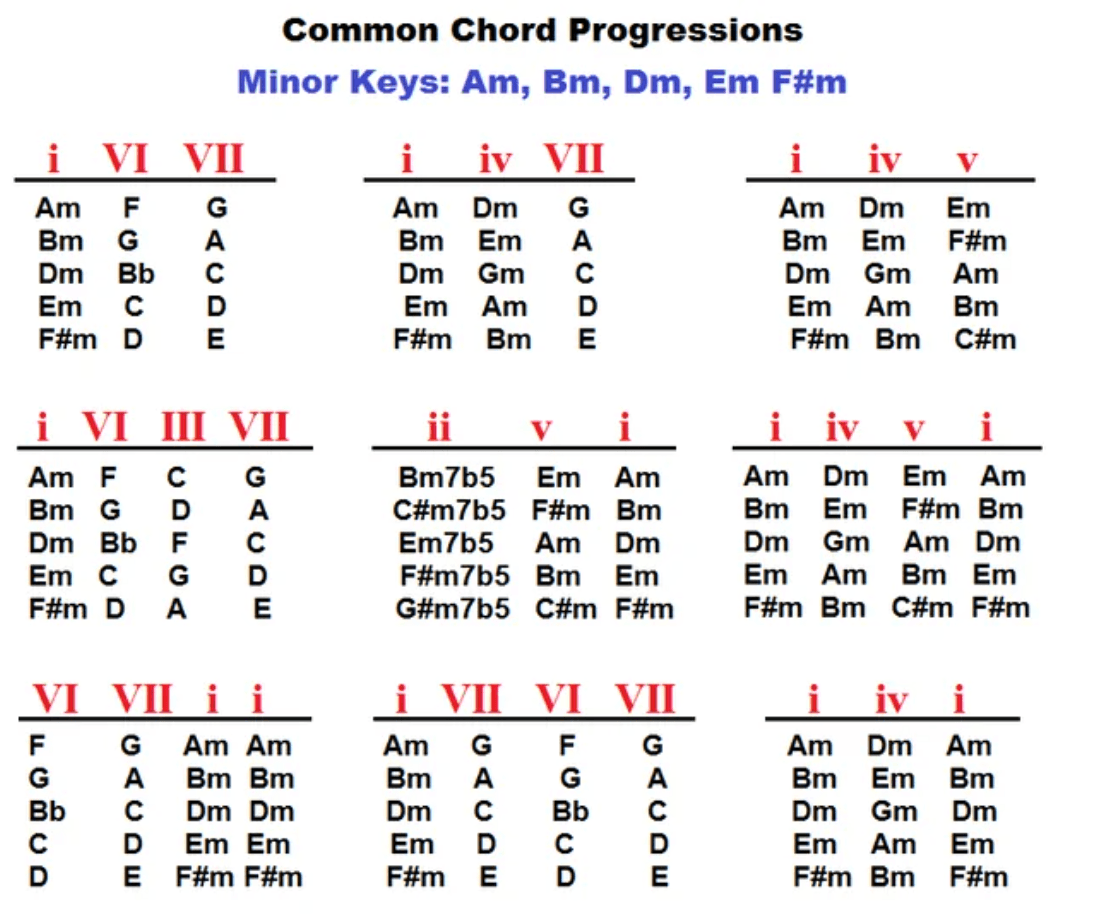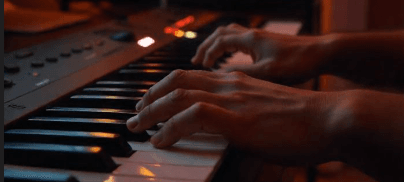The mysterious world of audio production can be a maze of emotions and sounds. Ever wondered how certain songs just tug at your heartstrings while others get your feet tapping?
Let's step into the universe of musical keys and discover the hidden emotions they project.

Embracing the Essence of Music
When we reflect on music, it's common to become entangled in the details such as notes, scales, and tempos. However, music transcends these elements.
It represents our communal adventures, cherished memories, and deepest emotions.
From the lullabies that lulled us to sleep as infants to the anthems we rallied behind as teenagers, music has been the backdrop to our most poignant moments.
The Soulful Connection
Beyond just entertainment, music serves as a mirror, reflecting our deepest desires, fears, and aspirations.
It goes beyond just the delight of hearing; it's about the emotional bond that music creates.
When lyrics of a song echo our feelings or its tune evokes a treasured past moment, it transforms from mere sound to something that intertwines with our essence, leaving an imprint on our spirit.
The Role of Musical Keys
But what gives music this power? A crucial element is the musical key. Think of it as the essence's foundation, the underlying force that shapes the song's emotional landscape.
Whether it paints a picture of euphoric highs with a major key or evokes heart-wrenching lows in a minor, the key is instrumental in guiding the listener's emotional journey.
It's this intricate dance of notes, scales, and keys that breathes life into a composition, making it resonate with listeners across time and space.
Unveiling the Power of Keys
Each musical key is like a distinct color on a painter's palette, each with its own shade of emotion. From the jubilant resonance of a D Major to the contemplative depth of an E Minor, the range is vast. The key can make a listener feel like they're on top of the world or plunge them into reflective introspection, all with just a change in tonal center.
The Science Behind the Magic
But what makes these keys so powerful? It's a mix of science and sentiment.
The frequencies and harmonics associated with different keys interact with our brain in unique ways.
This interaction can trigger specific neurotransmitters, leading to feelings of happiness, sadness, excitement, or calm.
In essence, the key can act as a conductor, orchestrating our emotional responses.
Crafting the Perfect Mood in Audio Production
In the realm of audio production, understanding the emotional nuance of each key is paramount.
It's the difference between a song that's merely pleasant to hear and one that leaves a lasting impact.
By strategically selecting and transitioning between keys, composers can craft a narrative, taking listeners on an emotional roller coaster.
It's this meticulous attention to detail, this deep understanding of keys, that elevates a piece from ordinary to extraordinary.
The Universal Language of Keys
Across cultures and eras, musical keys have remained a consistent language of emotion.
From Beethoven's symphonies to contemporary pop hits, the choice of key has always been a pivotal decision, shaping the song's soul.
As we continue to explore and innovate in the world of music, the timeless power of keys remains an ever-relevant force, guiding our sonic stories.
Exploring Popular Musical Keys and Their Rich Emotions
C Major: The Pure Innocence
C Major is like the laughter of a child—full of innocence and purity. Its tones evoke feelings of simplicity and naivety, reminiscent of childlike wonder.
Its powerful resolve can often give a sense of earnestness, sometimes even taking on a religious undertone.
When you think of a key that's completely unburdened and brimming with imagination, C Major is your go-to.
C Minor: The Love-Lorn Muse
C Minor sings of love, but not the kind that's all sunshine and roses. It's about declarations of affection and the lament of lost love or the pain of unhappy relationships.
This key is languishing and filled with longing, like a soul forever seeking its counterpart, or an old lover reminiscing about days gone by.
C# Minor: The Passionate Repenter
Dive into C# Minor and you'll find an ocean of deep grief, passionate expressions of sorrow, and profound introspection.
This key is about penance, self-punishment, and an intimate conversation with a higher power about misdeeds and atonement.
It's the musical embodiment of a soul bearing its burdens and seeking redemption.
D Major: The Optimistic Victor
D Major is the key of triumph. It exudes optimism and light-heartedness, almost like a victorious warrior's joyful return from battle.
This key screams of hallelujahs, war marches, and holiday songs. It invites you to join in the celebration, to be part of the winning team.
D Minor: The Pensive Contemplator
D Minor is contemplative, serious, and feminine in its demeanor.
It's the sound of deep thoughts, of brooding over life's complexities and challenges.
This key embodies the essence of melancholy, painting pictures of silent reflections and quiet worries.
D# Minor: The Haunted Soul
The eerie and chilling D# Minor is a journey into the depths of anxiety and existential terror.
This key speaks of profound distress, dark depression, and the shadows that lurk in the corners of the mind. It's the haunting whisper of ghosts, the shiver down your spine on a cold, moonless night.
Db Major: The Mournful Optimist
Db Major is paradoxical, combining the sorrow of loss with a glimmer of hope.
It speaks of rapture in sadness, of tears held back by a smile.
While it may carry an undertone of despair, there's also a richness, sonority, and euphony that hints at the possibility of brighter days.
E Major: The Boisterous Challenger
E Major is vibrant and full of life, but not without its conflicts.
While it shouts of joy and complete delight, there's an underlying current of bickering and short-temperedness.
It's the sound of celebration with an edge, a key ready to revel but also quick to pick a fight if provoked.
E Minor: The Reflective Dreamer
Delving into E Minor is like stepping into a realm of introspection and depth.
It carries an effeminate charm, portraying feelings of mournfulness and restlessness.
Imagine a princess in a tower, her heart full of longing, waiting for her knight—E Minor captures that essence beautifully.
Eb Major: The Devoted Conversationalist
Eb Major is a key that's both hard and full of devotion.
It's like a heartfelt conversation with the divine, embodying love, intimacy, openness, and honest communion.
This key brings forth the kind of music that feels like a personal dialogue with a higher power, full of reverence and spiritual connection.
F Major: The Calm Before the Storm
F Major is a curious mix of fury and composure.
It's like the deep breath taken before a storm, exuding controlled calmness but with an underlying readiness to erupt.
While there's an element of deep-seated anger, there's also a sociable and religious sentiment that keeps the rage in check.
F Minor: The Melancholic Lament
F Minor is the sound of profound sorrow.
It's the mourning over loss, the heartache of separation, and the weight of life's tragedies.
This key is all about lament, echoing with groans of misery and a readiness to give in to despair. It's music that touches the depths of the soul, stirring emotions that are often buried deep.
F# Major: The Warm Enthusiast
F# Major is the sonic equivalent of a comforting hug.
It conveys warmth and excitement, shining with brilliant clarity of thought and feeling.
If you're looking to depict triumph over challenges, with sighs of relief marking the journey, F# Major resonates perfectly.
F# Minor: The Brooding Tempest
F# Minor is a storm of emotions, characterized by its gloomy undertones and passionate resentment.
It's like a turbulent sea, with waves of discontent crashing against the shores of hope.
This key captures the essence of someone torn by inner conflict, wrestling with feelings of lament and regret.
While there's a sense of anguish, there's also a fighting spirit, a resilience that refuses to be defeated.
It's the sound of a heart battling its demons, yet holding onto the sliver of light at the end of the tunnel.
G Major: The Serene Storyteller
G Major is like a tranquil meadow on a sunny day. It's rustic, idyllic, poetic, and full of lyrical beauty.
This key embodies tenderness, gratitude, friendship, and faith.
It's a gentle embrace that soothes the spirit and offers solace to weary hearts.
G Minor: The Anxious Wanderer
G Minor is fraught with feelings of discontent and unease.
It's the sound of restless pacing, the gnashing of teeth over failed plans or the uncertain future.
This key captures the essence of struggle, of wrestling with internal conflicts and external challenges. It's the musical manifestation of a mind grappling with doubt and malcontent.
A Major: The Joyful Pastoral
A Major is like a sunny day in the countryside.
It exudes an aura of innocent love, satisfaction with the world, and optimism for the future.
Picture a scene of reunions with loved ones or trust in the divine; this key paints that canvas with youthful cheerfulness and an unwavering belief in the spirit of goodness.
A Minor: The Graceful Sorrow
A Minor is delicate, tender, and plaintive. It’s a key that speaks with a womanly grace and elegance.
Soft, soothing, yet tinged with a hint of melancholy, it's like the gentle touch of a comforting hand or the comforting embrace during a moment of vulnerability.
Ab Major: The Ethereal Visionary
Ab Major delves into themes of death, eternity, and judgment.
It paints vast, expansive viewpoints of a mysterious cosmos, touching upon the supernatural and the unknown.
With haunting undertones, this key evokes images of ghosts, ghouls, and graveyards, creating an atmosphere that's both eerie and lingering.
Ab Minor: The Resigned Realist
Ab Minor is the sound of a heart weighed down by life's struggles and disappointments.
It's characterized by grumbling, moaning, and wailing, capturing the suffocation of the heart and the lamentations of a soul battling life-long challenges.
This key offers a somber reflection on life's hardships, casting a shadow of pessimism.
B Major: The Wild Tempest
B Major is fierce, strong, and unyielding. It embodies uncontrolled passions, anger, and fury.
It’s the storm that rages, the fire that burns, filled with despair and burdened with negative energy.
This key is all about being ready for battle, with a spirit that refuses to be tamed.
B Minor: The Patient Observer
B Minor is the key of patience and solitary reflection.
It's the sound of someone waiting, not with anxiety, but with calm anticipation.
Picture a wise old sage, waiting for destiny to unfold, fully trusting in the course of providence and the natural flow of karma.
Bb Major: The Hopeful Visionary
Bb Major is the embodiment of clear conscience and hopeful aspirations.
It speaks of a bright tomorrow, a world brimming with love and peace.
This key is all about optimism, taking control, and ensuring harmony.
It's the sound of someone who believes in a better world and is ready to play their part in creating it.
Bb Minor: The Melancholic Poet
Bb Minor is like a rainy day, full of sorrow and melancholic undertones.
It speaks of the garment of night, surly moods, and a turning away from the world.
Its tones echo with preparations for the end, marked by pessimism and a sense of giving up.

Projecting Emotions Through the Right Key
Just as a painter carefully selects their palette to convey specific feelings and stories on a canvas, so too does a composer choose their musical key to craft a sonic narrative.
The choice of key in music is pivotal, much like choosing the color palette for a painting. It sets the atmosphere, defines the mood, and becomes the very foundation upon which the entire piece rests.
The magic lies in understanding the emotional implications of each key, allowing composers to weave tales that deeply resonate with their audience.
The Art of Emotional Storytelling
Fundamentally, music is a vehicle for conveying emotions. It serves as a channel to share our sentiments, narrate tales, and deeply resonate with others.
But the challenge lies in ensuring our music truly captures and communicates the feelings we aim to express.
1. Identify Your Core Emotion
Ask yourself, "What emotion is driving my composition?"
By pinpointing the central emotion you wish to express, you can align your creative choices with that intent, ensuring a more coherent and impactful piece.
2. Clarify Your Narrative
Consider the story behind your composition. "What story do I want to tell?"
Music is a powerful storytelling tool, and by understanding the narrative you wish to convey, you can choose a key that paints vivid musical scenes, capturing the essence of your tale.
3. Reflect on the Desired Listener Response
Lastly, ponder over the question, "What do I hope to elicit in my listeners?"
Your musical creation holds the power to stir a wide range of emotions in its listeners.
By considering the feelings you wish to provoke—whether they be happiness, sadness, thrill, or contemplation—you have the ability to sculpt a piece that resonates deeply with the listener's heart.
Creating music is an art, a journey of discovery.
While the human touch will always be irreplaceable, tools like Empress bring a fresh perspective to the mix. Whether you're seeking inspiration for chords, melodies, or lyrics, Empress is here to elevate your audio production experience. Discover, innovate, and let your creativity soar.
FAQs:
Q1: How do different keys impact the emotion of a song?
Each musical key carries its emotional weight, influencing how listeners perceive and connect with the song.
Q2: Why is the choice of key important in audio production?
The key sets the song's mood and can enhance or diminish its emotional impact.
Q3: Can changing the key of a song change its emotion?
Absolutely! Transposing a song to a different key can give it a completely new feel.
Q4: How does Empress aid in selecting the right key?
Empress offers AI tools that provide insights and suggestions, assisting musicians in their creative process.
Q5: Are all songs in minor keys sad?
Not necessarily. While minor keys often have a melancholic feel, other factors, like tempo and instrumentation, play a role in the song's overall emotion.
Follow the future of music with Empress. Check out our blog to learn how you can effectively use these AI music tools.


